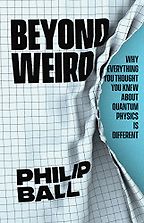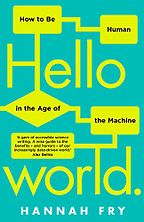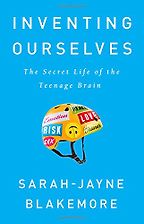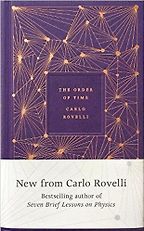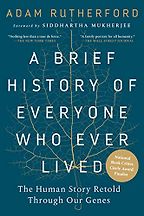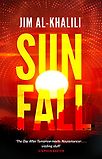I struggled with this list, but I have finally chosen five excellent popular science books. I could have made up a different list of equally excellent reads, but I thought I would go for a wide range of subjects within science by extremely talented authors, so I have gone for the meaning of quantum physics, artificial intelligence, neuroscience of teenage brains, the nature of time and human genetics—mind-expanding stuff I think you’ll agree, as long as your brain doesn’t explode.
Beyond Weird: Why Everything You Thought You Knew about Quantum Physics Is Different, by Philip Ball
I thought I’d kick off with something simple! How about a book on the meaning of quantum physics? You may have heard the saying, ‘If you think you’re not baffled by quantum mechanics then you haven’t understood it’. Well, there is certainly no shortage of books out there all vying for the title of best demystifier of this counterintuitive, yet powerful, theory of the subatomic world. Philip Ball’s book, which has received much praise since it was published last year, is one of the most lucid and enlightening books on the nature of reality of the quantum world that I have ever read.
Hello World: How to be Human in the Age of the Machine, by Hannah Fry
Computer algorithms are playing an increasingly important role in our lives, so should we be afraid? This immensely enjoyable book from the mathematician and broadcaster, Hannah Fry, looks towards the not-too-distant future when machines might rule supreme, making important decisions on our behalf, not just about what movies we might want to watch online or what items to buy, but in healthcare, transport, finance and security. She explores whether this is the kind of future we want. The fact is, the age of AI is coming fast, and we need to be ready for it. This book will help you decide how worried you should be.
Inventing Ourselves: The Secret Life of the Teenage Brain, by Sarah-Jayne Blakemore
Any parent of teenagers will enjoy this book. What is it that happens to your child’s brain as they enter adolescence—their mood swings, their need for intense friendships, the excessive risk taking . . . Blakemore is a superb neuroscientist, and also, it turns out, a remarkably engaging and talented writer. Drawing on her own research, she digs into the teenage brain and explains how it undergoes such a remarkable transformation. Teenagers have been much maligned, but there is a biological reason for their behaviour and we really should cut them some slack.
Get the weekly Five Books newsletter
The Order of Time, by Carlo Rovelli
Because they are translated from the original Italian, Rovelli’s books retain a beautiful poetry which, combined with his deep knowledge of fundamental physics, make for a wonderfully charming mix. This, his latest book, will definitely get you thinking. It deals with the age-old mystery of the nature of time itself and what modern physics has to say about it. To give you an example of his style, when he tries to persuade us that the most fundamental feature of our universe is not the solid, permanence of physical matter, but ephemeral events in space and time. He says ‘the world is made up of kisses, not stones’. See what I mean? Utterly mesmerising.
A Brief History of Everyone Who Ever Lived: The Stories in Our Genes, by Adam Rutherford
I took this book on holiday with me a couple of years ago and simply couldn’t put it down. I kept annoying my wife by sharing with her a lot of the ‘did you know . . . ?’ nuggets I was reading. Rutherford tells the story of our genetic makeup, how it has shaped human history and what history can now tell us about our genes. It’s a hugely illuminating and fresh take on who we are and how we came to be.
June 13, 2019. Updated: May 17, 2025
Five Books aims to keep its book recommendations and interviews up to date. If you are the interviewee and would like to update your choice of books (or even just what you say about them) please email us at [email protected]
Five Books interviews are expensive to produce. If you've enjoyed this interview, please support us by donating a small amount.
